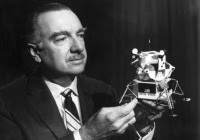Now that the Boston Newspaper Guild has decisively approved a $10 million package of wage and benefit cuts, it seems like anyone who’s been following this closely should be able to offer some thoughts on what’s next for the Boston Globe.
For the time being, though, everything that can be said has already been said several times over. It’s a sign of how long this has dragged on that Romenesko offers just the bare bones, and that the trade magazine Editor & Publisher goes with an AP story. A huge story has gotten smaller with the passage of time.
The Guild cuts, along with another $10 million agreed to by the Globe’s other unions, are going to be a bitter pill to swallow. Management never fostered a sense of shared sacrifice, which is why a similar package was narrowly defeated last month. Still, simply as a reader, I hope yesterday’s vote allows the paper to move forward rather than obsess over the Globe’s uncertain present.
More than anything, we should all hope that the vote leads to a quick sale by the New York Times Co. to local owners who will do what they can to preserve the Globe as a leading regional institution. I would argue that the Times Co. was a reasonably good steward until the last year or so. But it all got very ugly very quickly.
This relationship can’t end soon enough, provided the right buyers can be found.


